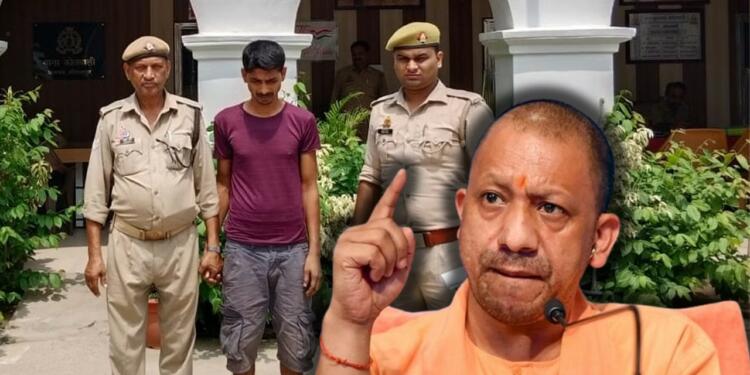2007 Gorakhpur riots: Do you recall the moment when Yogi Adityanath, now serving as the Chief Minister of Uttar Pradesh, almost choked while addressing the Parliament? He was recounting the days of his unjust imprisonment under false charges. Well, after years of struggle and turmoil, he has finally been vindicated.
The turning point in this long-standing saga came when Mohammad Shamim, the chief accused in the infamous Gorakhpur riots of 2007, was sentenced to life imprisonment. The Gorakhpur riots of 2007 were a dark chapter in the city’s history, marked by communal clashes that had devastating consequences.
Shamim had managed to secure bail in August 2007, following his initial arrest. This move allowed him to evade the authorities for over a decade. However, in 2012, a court delivered a significant verdict, sentencing both Shamim and his father, Shafiqullah, to life imprisonment in connection with a murder case.
The investigation into Shamim’s whereabouts revealed that he had fled to Chennai after securing bail in 2007. It wasn’t until he returned to Gorakhpur and took up residence in a rented house in the Kotwali area, specifically in Nizampur, that the police managed to track him down. Shamim’s father, Shafiqullah, was already serving his sentence in jail, further emphasizing the severity of the case.
Also read: Yogi Adityanath Wins again: High Court dismisses petition against UP CM
For those unfamiliar with the Gorakhpur riots, the city was marred by widespread communal clashes in 2007. The tensions that led to Shamim’s conviction were sparked by a tragic incident that occurred in January of that year. During a Muharram procession in the Kotwali area of Gorakhpur, a Hindu man named Rajkumar Agrahari was killed.
Agrahari’s murder, resulting from an attack by Shamim and his associates wielding swords and knives, triggered a wave of communal unrest in Gorakhpur. The incident led to the registration of a case and the subsequent arrest of Shamim and his father. The situation had reached such a critical point that Yogi Adityanath, who was then the Member of Parliament from Gorakhpur, arrived at the scene. He demanded swift and decisive action, hinting at possible connections to external terrorist networks.
To his profound shock, Yogi Adityanath himself was arrested on false charges and unjustly imprisoned for almost two weeks. This arrest came at the behest of the then government, led by Mulayam Singh Yadav, who had a reputation for overt appeasement of radical Islamists.
The incident of Yogi’s false arrest was a pivotal moment that still reverberates through the annals of Indian political history. It was a time of great turmoil and tension in Gorakhpur, and Yogi’s emotional address in Parliament, where he almost choked while recounting his imprisonment, remains etched in the memory of many.
Today, Yogi Adityanath stands vindicated. The long and complex legal battle that began with the communal clashes of 2007 has finally seen a resolution. Mohammad Shamim’s conviction for his role in the Gorakhpur riots is a significant milestone in the pursuit of justice.
The case underscores the importance of a fair and impartial judicial system, where individuals are tried based on evidence and the rule of law, rather than being subjected to political motivations or external pressures. It also serves as a reminder of the need for politicians to maintain a sense of responsibility and impartiality during times of communal tension.
As Uttar Pradesh’s Chief Minister, Yogi Adityanath has faced numerous challenges and controversies. However, his vindication in the Gorakhpur riots case is a testament to the resilience of individuals who stand up for justice, even in the face of adversity. It sends a powerful message about the importance of upholding the principles of justice and fairness in our society.
Also read: “What’s stopping us from reclaiming Sindh?” asks Yogi
The Gorakhpur riots of 2007 were a dark period in the city’s history, marked by violence and communal tension. The conviction of Mohammad Shamim and the subsequent vindication of Yogi Adityanath is a significant step towards closure for the victims and their families. It is also a reminder that justice, though delayed, can ultimately prevail.
In conclusion, the resolution of the Gorakhpur riots case is a milestone in the pursuit of justice and a testament to the unwavering commitment of individuals like Yogi Adityanath. It highlights the need for a fair and impartial judicial system and serves as a reminder of the importance of upholding justice, even in the face of adversity. This is a moment of vindication not only for Yogi Adityanath but also for the principles of justice and fairness in our society.
Support TFI:
Support us to strengthen the ‘Right’ ideology of cultural nationalism by purchasing the best quality garments from TFI-STORE.COM.

























